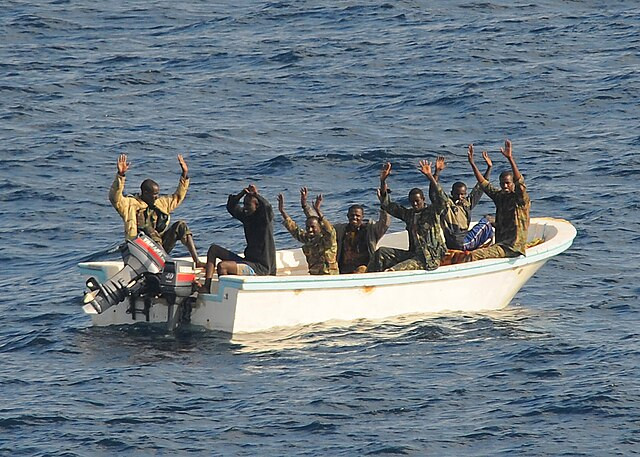The resurgence of Somali piracy is posing a renewed threat to global shipping, complicating an already strained situation with escalating risks and costs for the industry.
A recent incident involving the hijacking of the Bangladeshi-flagged bulk carrier Abdullah by over a dozen Somali pirates has underscored the growing menace in the western Indian Ocean. Despite a distress signal and an emergency call, the crew, including the captain and second officer, was taken hostage, highlighting the critical security challenges in the region.
This resurgence comes after a period of relative calm, achieved through concerted international naval efforts that had significantly curtailed pirate activities. However, with more than 20 attempted hijackings since November, the maritime community is on high alert. The increased pirate activity has led to a rise in the costs associated with shipping, including higher premiums for armed security guards and insurance coverage, not to mention the looming specter of potential ransom payments.
The pirates' renewed boldness is partly attributed to the diversion of international naval resources towards addressing other regional security threats, such as drone and missile strikes by Yemen's Houthi militia. This shift has provided a window of opportunity for Somali pirates to re-establish their operations, exploiting the reduced naval presence off the Somali coast.
The hijacking incidents, including that of the Abdullah, have prompted a robust response from international forces. The Indian Navy, for example, successfully intercepted and freed the Malta-flagged Ruen, which had been seized by pirates and used as a base for further attacks. This operation led to the surrender of 35 pirates and the rescue of 17 hostages, highlighting the potential for effective deterrent actions against piracy.
Despite these successes, the Somali government and maritime security experts emphasize the importance of a comprehensive approach to tackling piracy. Somali President Hassan Sheikh Mohamud has advocated for enhancing Somalia's law enforcement capabilities both at sea and on land, rather than solely relying on international naval patrols. However, resource constraints, including limited operational coast guard vessels, pose significant challenges to these efforts.
The international community remains committed to supporting Somalia in addressing piracy, with missions led by the European Union, the United States, and NATO playing pivotal roles. Yet, the lapse of a crucial U.N. resolution authorizing foreign vessels to patrol Somali waters has further complicated the situation, underscoring the need for renewed international cooperation and engagement.
As the shipping industry navigates through these troubled waters, the specter of Somali piracy serves as a reminder of the persistent and evolving threats to global maritime security. With billions of dollars and thousands of lives at stake, the resurgence of piracy off the Somali coast demands urgent attention and coordinated action from the international community to safeguard the vital shipping lanes that underpin the global economy.




